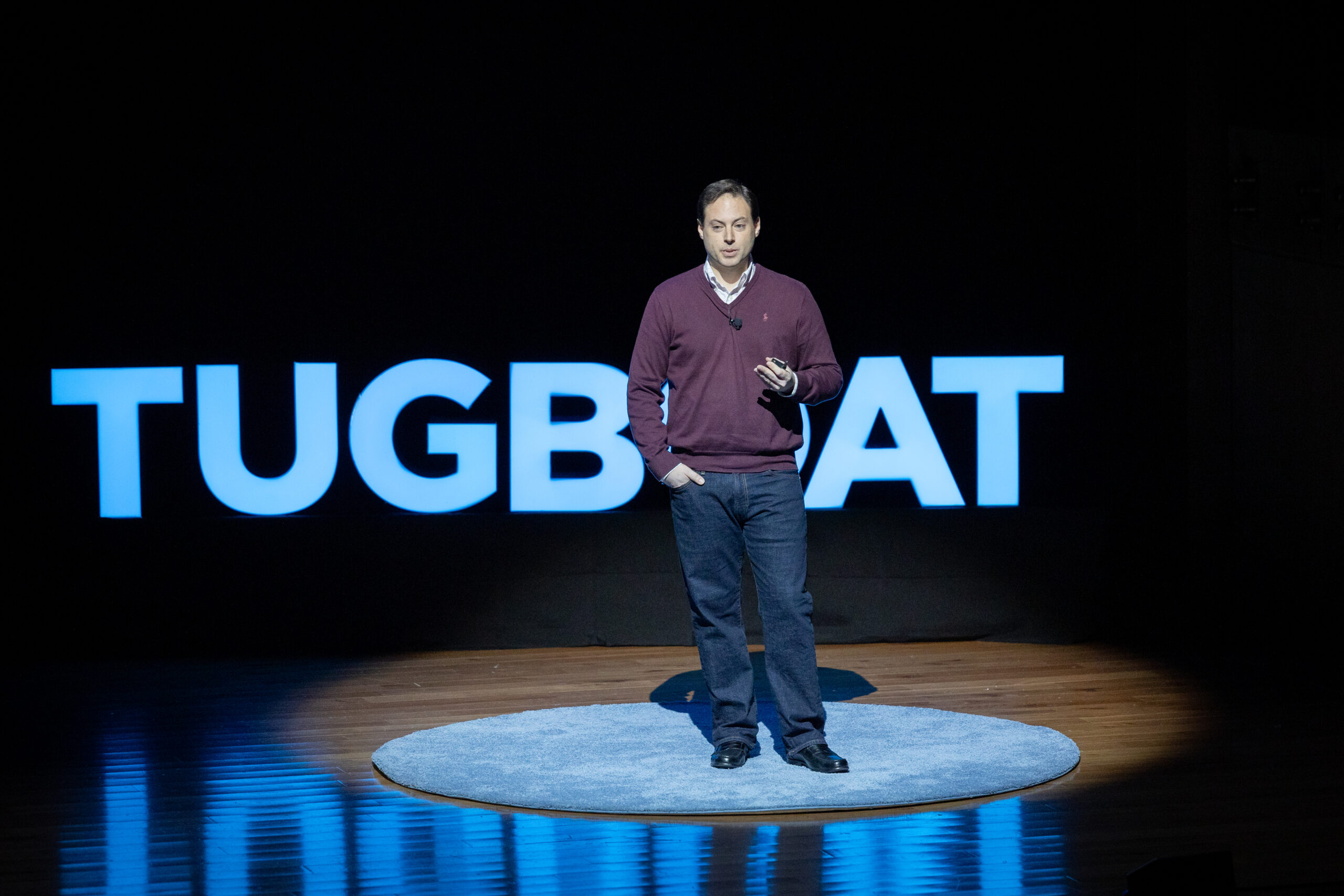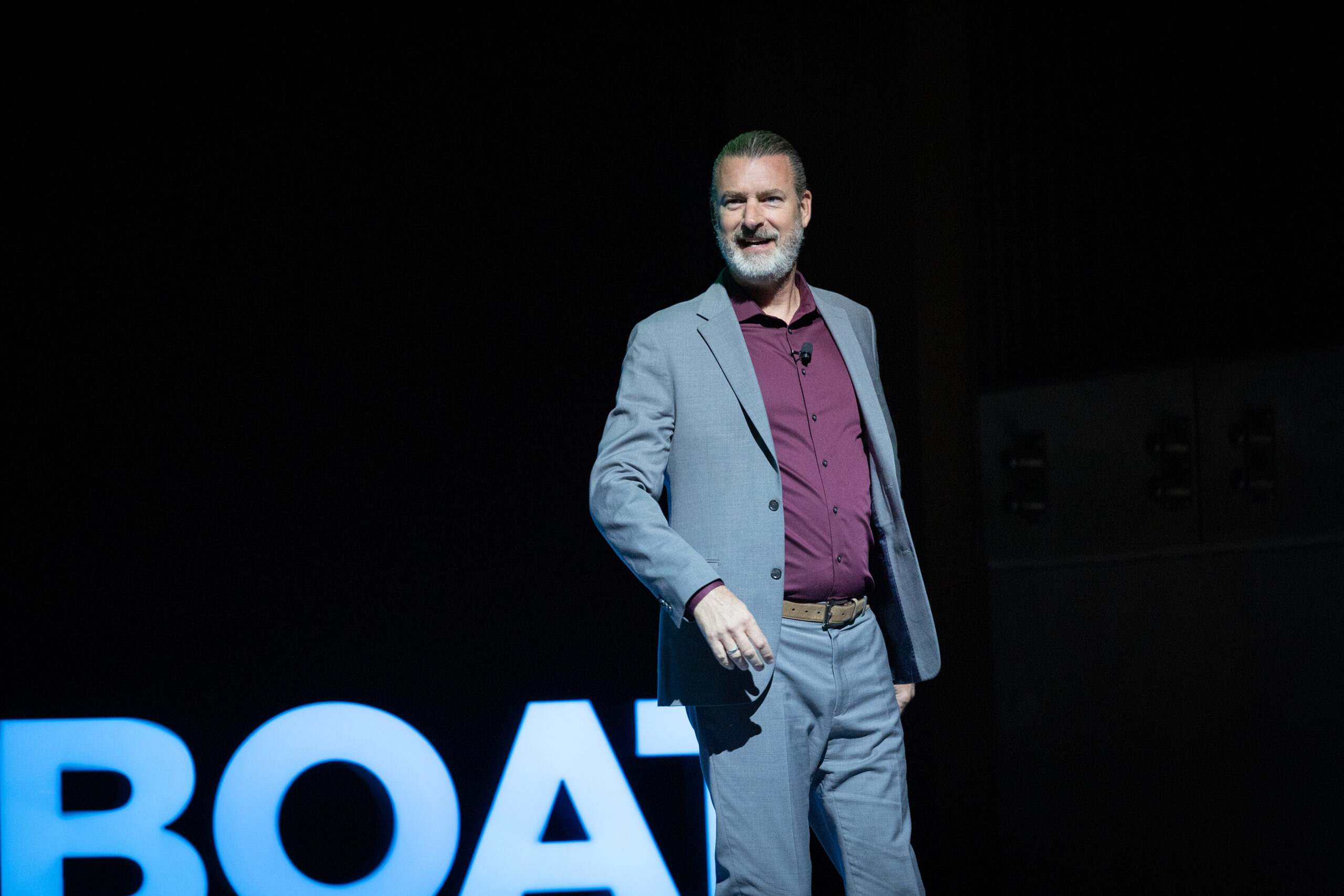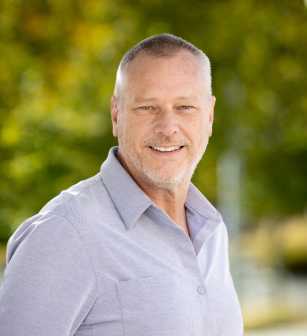The Predictive Power of Culture Analytics
Evergreen® companies, who value their teams and put People First, believe deeply in the importance of a strong culture. However, the critical value of a strong culture is not simply a matter of faith. In this Tugboat Institute® talk, Oliver Staehelin shares concrete data around the specific, strategic advantages a strong culture can give a company. In a world where competition for great talent is not going to ease anytime soon, this is not an optional undertaking for the company that wants to retain a strong team over the long term.
Oliver was an early member of Tugboat Institute, while he was leading the culture assessment company he co-founded with Stanford Professor Charles O’Reilly, Pomello. His early career and all of his subsequent work confirmed for him that culture is not a ‘soft’ topic, nor are its benefits immeasurable.
Watch and be inspired to transform your company’s culture into one of its greatest strategic advantages.
A Peek Past the End of the World
Has the age of globalization come to an end? Given current demographic, political, and economic realities, what will the coming decades look like? And importantly, as business leaders, how can we best position ourselves to not only survive, but to succeed in the coming era? Peter Zeihan tackles all of these questions and more in this thought-provoking Tugboat Institute® talk.
Peter Zeihan is a leading geopolitical strategist and the author of The Accidental Superpower, The Absent Superpower, and, most recently, The End of the World is Just the Beginning: Mapping the Collapse of Globalization. His sometimes uncomfortable predictions for the future are grounded in geopolitical analysis that relies heavily on demographic, political, and economic data. Whether or not you agree with his analysis, he reveals some realities that bear serious consideration as you, as a business leader, prepare for the coming decades.
Watch and consider the myriad factors that will shape the political, economic, and social landscape in the decades to come and how they might affect your business.
Supporting Community and Business Through One People First Initiative
The story I want to share with you today starts with the convergence of two separate stories, that happened to intersect at just the right time. One is the story of the evolution of my company, Refined Technologies Inc (RTI), and the other my introduction, through a friend, to a sector of society that needs attention. Both stories are grounded in the People First mindset that I try to bring not only to my work, but to my life in general.
First, a bit about RTI. RTI is an oil and gas service business. We go into refineries, petrochemical plants, and other hydrocarbon producing facilities and we help them clean their equipment when it is time for turnaround and maintenance. RTI has evolved over the years. Initially, we were a chemical business; we sold chemicals to the refineries who used them to do the cleaning themselves. Then we saw an opportunity, and we became a service business; we started bringing in our own teams to do the cleaning for them. When companies shut down part of a refinery to clean the equipment, they can’t just shut down production, so our clients were having to bring in temporary facilities to keep the work going while the cleaning was taking place. Finding temporary facilities is complicated, and our clients did their best–with uneven results. It’s important to do this work right, or it can become a safety issue. Eventually, we perceived an opportunity and a need to rent and install the temporary facilities ourselves. In this newest phase of our business, we have evolved from a light asset business to a heavy asset business, so in addition to the cleaning work that we continue to do, we now need to store, maintain, track, certify, and inventory all our equipment. Our team is growing quickly, and like many of you, we are finding it challenging to fill all our open positions in today’s labor market.
As all this was happening at RTI, I became involved in an initiative that a friend had started in Kansas that has to do with fair-wage work for incarcerated people. I was inspired by the work they were doing to support this marginalized population, so I got involved in a prison reentry ministry. The essence of this work aims to solve the enormous challenges incarcerated people face as they reenter society. They are at a massive disadvantage.
In Harris County, Texas, which is the Houston area, there are approximately 15,000 men and women released from state prison each year. That’s in just one county. This does not include federal prisons, so the true numbers are staggering. As I got involved in this work, I learned that there were organizations doing a variety of reentry services, but those organizations were not able to offer enough services to even come close to meeting the demand.
In Harris County, when prisoners are released, they are dropped at the Greyhound bus station, given $50, and told not to recidivate. The odds are stacked against them, to say the least. In 2017, with a group of friends, we started a nonprofit that provided reentry services. We named the organization CrossWalk Center, positioning ourselves as a metaphorical crosswalk, looking to help formerly incarcerated individuals get from one side to the other safely. It immediately became obvious that in order to make the transition back to society successfully, you need housing, you need support, and you need employment, so that was our focus.
As I was working on CrossWalk, at RTI, we were growing. We had just started this maintenance business and needed a lot of people to maintain the equipment we had acquired. Unemployment in Texas was, and still is, very low. It’s reported at 3%, but in reality, it’s essentially zero. We were struggling to find employees for the new jobs we had created. We had a revolving door of temporary employees, coming in, working for a while, and then failing drug tests and leaving. We were trying to run a business that was safe and reliable. It wasn’t working. It finally occurred to me that maybe my work with CrossWalk could intersect with my work at RTI.
I sat down one day and talked with one of our supervisors in the maintenance department and asked if he would consider hiring ex-offenders. He had recently been ordained a minister and he said, absolutely. So, in January of 2018, we hired our first CrossWalk guy – Smitty. Smitty was 51 years old and had done 25 years in prison. He wanted to work. To say that the experience was a success is an understatement; Smitty is still on our team today, and now works as a supervisor.
Since bringing Smitty on board we have learned a lot. We didn’t get it all right from day one, but we are doing it with consistency and repetition now. Today, we have about 40 team members who have come through this program. Many, though not all of them, have become involved in a ministry program. That is not a necessary part of it, but we have found that it is necessary that they find some higher reason for living. Whether it’s God or family or something else, it’s about making the decision to change your life.
Aside from being able to offer an important opportunity to these individuals, we have also seen great results from a business standpoint. This has become an invaluable addition to our business and created an aligned and differentiated culture and team. Our turnover rate is less than 10%, and we’ve been able to successfully grow and scale this new arm of our business.
We are working with local businesses now, trying to help other employers implement programs like ours. Together, we hope to find jobs for 500 formerly incarcerated individuals in the greater Houston area this year. There’s a process to follow and education is a big part of the conversations we have with these other Houston businesses. You can’t just go down to the bus station and start hiring people. It works best when you work with a partner organization, whether it’s a ministry or not, who can educate and support this population. Partner organizations help with a robust interview process that helps you select the people who are most likely to have success, stay clean, and be dedicated employees. It’s a work in progress, but it’s growing, and we are thrilled.
Today, I am a major advocate for second-chance employers. What started out as a ministry passion project has opened my eyes to a big problem in society. We are facing a huge hiring crisis, in the $20/hour jobs as much as the more executive level jobs across the country. At the same time, there are 19 million people with felony records in the US. The unemployment rate for ex-felons, unlike 3% for everyone else, is somewhere around 45%. There is no reason to believe that is going to improve anytime soon. Why shouldn’t we try to solve both problems at once? Solving the problem of how to help ex-offenders can become a real solution to a business problem. We took a calculated risk, and it’s been a great success.
If I have one piece of advice for the Tugboat Institute® community that I have learned from this experience, it’s this: if you are interested in being in business for the long term and you care about your communities, which I know you do, why wouldn’t you consider this as a possible solution to both your problem and to a growing problem in our society? It has huge potential to be a win-win for everyone.
Don’t Assume They Know!
As I began working with several Tugboat Institute® members over the past year, I saw a pattern. Even the best run Evergreen® companies experience the same challenge: the need to routinely and clearly speak their Purpose and plan deep into their organizations.
Failing to deeply and clearly communicate is one of the most common opportunities for improvement from among the 50 growth practices covered in the Tugboat Evergreen Growth Training Series. Left unaddressed for long periods, this communication deficiency can significantly hinder organizational performance, eat away profits, and undermine the firm’s long-term full-growth potential.
Each day employees throughout the organization, down to the lowest levels, are required to make decisions. Many of those decisions require deviating from normal standard operating procedures, if there are any, and applying a bit of creative experimentation. A customer has a unique problem, a package needs special handling, there may be a better way to execute an important task. The CEO or President needs to be certain that when employees take such initiative, their actions and desired results are highly consistent with what their Evergreen company is striving to achieve and aligned with its Purpose and growth plan. Otherwise, employees are likely to make decisions and take risks that are not in the best interest of the enterprise. This causes entropy, which essentially means sub-optimal efficiency created by a significant variation between what is being done and what you want done for the long-run good of the firm. This can, in turn, destroy productivity, waste resources, and shrink margins.
The good news is that addressing this critical issue is fairly straightforward. Evergreen companies must focus on the core components of effective communication: clarity, frequency, and reach. The Purpose and plan must be clear, easily understood, and consistently reiterated to embed them into the collective memory. It is not enough for the Purpose to be hung on the walls and printed on t-shirts, although that might be a start. Purpose and plan, need to be discussed everywhere: annual meetings, team meetings, strategy offsites, the newsletters that go out, holiday events, etc. Remind, remind, and remind again. And they don’t just need to know what they are; they also need examples of what they look like in action, or how they play out in the activity of the team. From the first hour a new employee goes through on-boarding, they need to be enculturated with Purpose, and they must be reminded over and over throughout their working tenure with the company. These consistent and repetitive interactions cascade the message from the leadership team down to the lowest level employees.
Fortunately, implementing effective communication strategies does not require exorbitant financial investments. The primary costs are time and attention, particularly at higher levels of the organization. If your Evergreen company is small, this is the place to start. The potential returns on this investment are substantial.
To further enhance communication efforts, for Evergreen companies that are larger and have the means, hiring an experienced and dedicated specialist can be a prudent move. This individual would be responsible for managing and ensuring the consistent dissemination of these critical messages throughout the organization, thereby maximizing their impact. This step can set you on your way to removing one of the obstacles that stands between you and optimized Paced Growth.
The significance of effective communication in an Evergreen organization cannot be overstated. It bridges the gap between the executive leadership team's strategic decisions and the decentralized implementation of those decisions throughout the company. By clearly articulating the company's Purpose, as well as the growth plan, and continuously reinforcing them through conversation, companies can mitigate entropy, enhance productivity, safeguard margins, and significantly increase their odds of long term, profitable growth.
Is this a problem in your organization? Take the first step to find out; look outside of the leadership team and evaluate how well your Purpose is understood and brought to life by every member of your organization. Recognizing the importance of effective communication is critical to unlocking the full potential of Paced Growth, and fostering a culture of shared Purpose.



